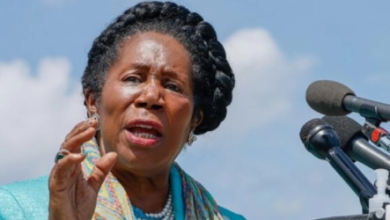Pakistan Election Raises Concerns Amid Accusations of Military Interference

In November 2022, then-army chief Qamar Javed Bajwa admitted Pakistan’s military involvement in politics for decades but promised a departure from such interference in his farewell speech. However, as the February 8 general election approaches, doubts persist about the military’s influence, casting a shadow over the fairness of the polls.
Pakistan
The concerns stem from the denial of the Pakistan Tehreek-e-Insaf (PTI) party’s election symbol and the imprisonment of its leaders, including former Prime Minister Imran Khan, with some members forced to contest as independents. Journalists report censorship imposed by the military, particularly regarding coverage of Khan and the PTI, creating a subdued campaign atmosphere.
Pakistan’s political landscape reflects a deep-seated military influence, stemming from over three decades of direct rule and behind-the-scenes control over the country’s 77-year history. This influence has led to a democracy where no prime minister has completed a full five-year term, while military dictators ruled for extended periods.
The military’s dominance originated in 1948 during the war against India, with subsequent martial law declarations solidifying its power. The military consistently received substantial budgetary resources, fostering its role as a bulwark against perceived Indian threats. Multiple wars with India further entrenched the army’s centrality, creating what political scientist Asma Faiz terms an “establishmentarian democracy.”
However, critics argue that the civilian-military imbalance has turned the upcoming election into a farce. Despite previous agreements like the Charter of Democracy in 2006, where political parties pledged not to undermine each other unconstitutionally, the influence of the military has persisted.
While civilian governments have faced challenges in delivering effective governance, frequent military interference has led to dynastic, family-controlled, and undemocratic political parties. The inability of governments to complete their terms and irregularities in scheduling elections highlight the persistent influence of the military in shaping Pakistan’s political landscape.
The current election has seen the persecution of Imran Khan and the PTI, with accusations of military interference, arrests, and censorship creating a contentious environment. Analysts emphasize the need for political leaders to come together and establish a set of rules for fair elections, acknowledging that without military involvement, resolving the country’s challenges remains unlikely.
Despite doubts surrounding the credibility of the upcoming vote, some believe elections are crucial for Pakistan’s future. However, others view the polls as a military-driven catharsis, seeking an election without Imran Khan and the PTI as their bottom line. The outcome of Pakistan’s 12th general election may provide insights into the country’s ability to address the civilian-military imbalance and strengthen democratic institutions.




